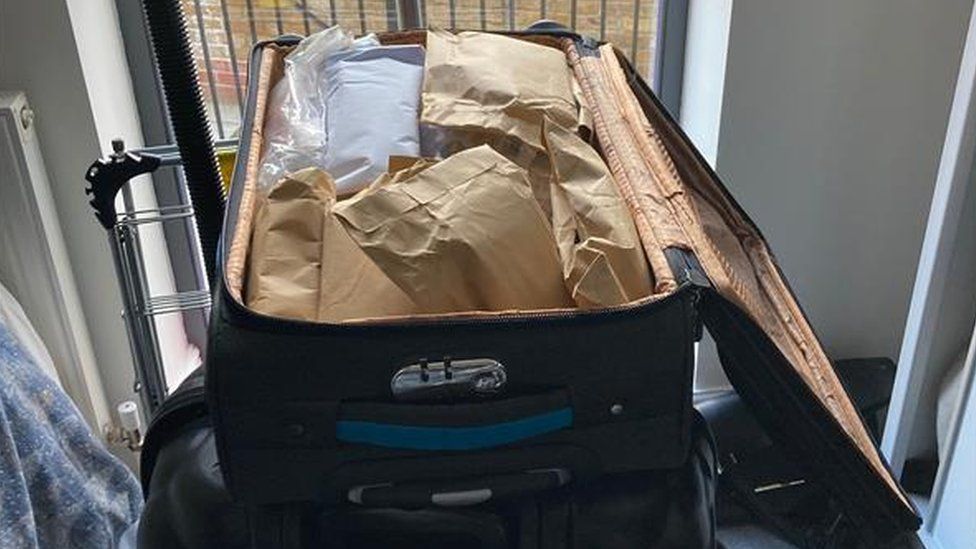
Five members of an organised gang have been convicted of what has been described by the Crown Prosecution Service (CPS) as the largest case of benefit fraud in England and Wales.
The gang of three women and two men – all Bulgarian – made thousands of fraudulent claims for Universal Credit over a four and a half year period.
They each admitted to stealing more than £50m at London’s Wood Green Crown Court.
All five pleaded guilty to fraud.
They also admitted money laundering offences.
According to the CPS, the gang – Gyunesh Ali, 33, Galina Nikolova, 38, Stoyan Stoyanov, 27, Tsvetka Todorova, 52, and Patritsia Paneva, 26 – made thousands of false claims for Universal Credit using either real people or hijacked identities.
These claims were supported by an array of forged documents, including fictitious tenancy agreements, counterfeit payslips and forged letters from landlords, employers and GPs.
If the claims were rejected, the fraudsters would try again and again until they were granted, the CPS said.
The investigation identified three “benefit factories” in the Wood Green area of north London where repeated false claims for benefits originated.
The businesses claimed to assist people with obtaining a National Insurance number and benefits to which they were entitled.

However, it was found that after applicants made their claims for benefits through these three sources, they then left them in the hands of the organised crime group.
Once the claims were made, money was laundered around numerous bank accounts or withdrawn in cash.
The false claims were made between October 2016 and May 2021.

Specialist CPS prosecutor Ben Reid said the case was the “largest benefit fraud prosecution ever brought to the courts in England and Wales”.
“These defendants conspired to commit industrial-scale fraud against the Universal Credit system,” he said.
“Submitting thousands of false claims, the organised criminals enriched themselves from government funds designed to protect and help the most vulnerable people in our society.”
The Department for Work and Pensions (DWP) said the gang had stolen £53.9m by using “a sophisticated combination of legitimate identity documents and fake documentation to make it appear that they were eligible to benefits when they were not”.

When the gang was finally arrested, in May 2021, hundreds of forged or false documents were found, as well as bundles of cash – some stuffed in suitcases – an Audi car, and designer goods including glasses, watches and jackets, the CPS said.
One of the gang, Ali, escaped to Bulgaria after being released under caution by police and had to be extradited back to the UK.
Ali, Nikolova, Stoyanov, Todorova and Paneva are all due to be sentenced at Wood Green Crown Court on 28 May.
Secretary of State for Work and Pensions Mel Stride praised the collaboration between the CPS and DWP.
“These convictions underline our commitment to protecting taxpayers’ money. It is only right and fair that we bring those stealing from the public purse to justice,” he said.
Universal Credit is the main welfare benefit in the UK and it is currently claimed by 5.8 million people – a mixture of people both in and out of work.
When it was launched in 2013, the government said its design would reduce fraud and error in the welfare system.
But, as the benefit was rolled out to more claimants, fraud levels increased, peaking during the pandemic when the rules claimants had to follow were relaxed.
Source: bbc.co.uk






Be the first to comment